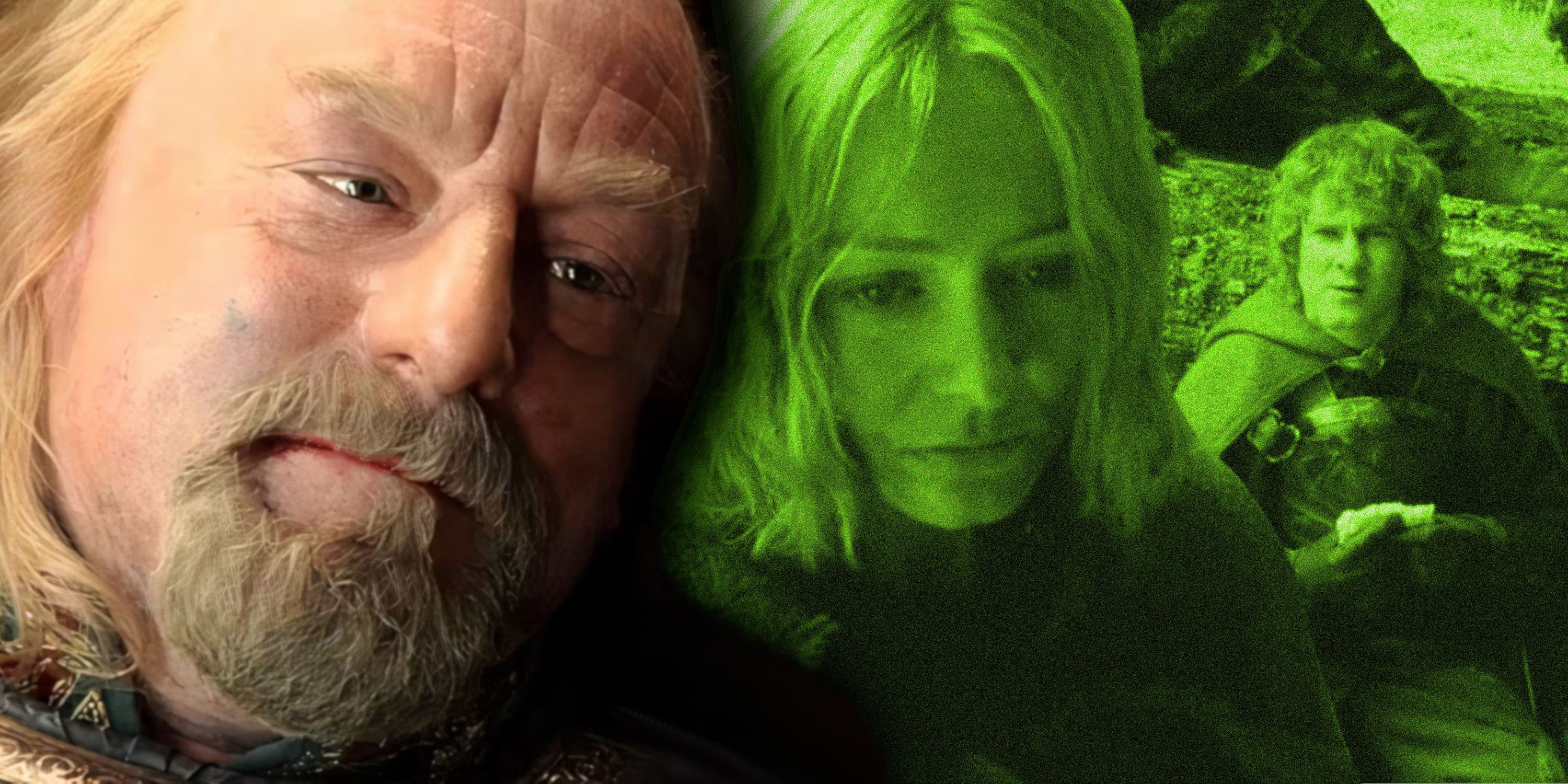
Théoden’s niece, Éowyn — who had been like a daughter to him ever since his sister’s death — avenged him by slaying the Witch-king and the monstrous fell beast upon which he rode. By the time their duel was complete, Théoden was barely clinging to life, and Éowyn knelt beside him so they could spend his final moments together. The scene was bittersweet because even though it was the death of a beloved character, he had a cathartic send-off. He was able to come to terms with his life up to that point, and he got to say goodbye to one of the most important people in his life. Théoden’s death was mostly accurate to J. R. R. Tolkien’s The Lord of the Rings novel, but Jackson made one alteration to his version of the scene that had a massive impact.
Théoden’s Death Was the Culmination of His Character Arc

Actor Name
Bernard Hill
Birthplace
Reydon, Suffolk, England
Birthdate
December 17, 1944
First Film Acting Role
Trial by Combat (1976)
Awards Won
Broadcasting Press Guild Award for Best Actor (1983), British Horror Film Festival Jury Prize for Best Supporting Actor (2023)
Théoden then told Éowyn, “I go to my fathers, in whose mighty company I shall not now feel ashamed.” This was an important moment for Théoden. He was descended from a long line of legendary kings and heroes, such as Helm Hammerhand, and he did not think that he lived up to their legacy. He blamed himself for the hardships that Rohan had faced throughout the War of the Ring, and because of that, he suffered from low self-esteem. The Battle of the Pelennor Fields was a turning point for Théoden’s mindset. He felt that he had finally proven his worth by leading the Rohirrim into battle, honoring his kingdom’s ancient oath to aid Gondor, and facing such a terrifying opponent as the Witch-king. He saw his death as an honorable one. Finally, he said Éowyn’s name one last time before passing away. The extended edition of The Return of the King showed that Éowyn nearly succumbed to her wounds soon afterward, but Aragorn saved her life in the Houses of Healing.
Théoden’s Final Moments Were Different in the Novel

The soundtrack for Théoden’s death scene in the film included a choir singing in Old English; the lyrics were a truncated version of a lament that Éomer sang after Théoden’s death in the novel.
Merry apologized to Théoden both for disobeying his orders by participating in the battle and for being unable to save him. Théoden responded, “Grieve not! It is forgiven… Live now in blessedness; and when you sit in peace with your pipe, think of me! For never now shall I sit with you in Meduseld, as I promised, or listen to your herb-lore.” He then asked Merry to “send word to Éowyn” about what had happened, as he regretted that he would never get to see her again. Merry started to inform him that Éowyn was there on the battlefield with him, but he was interrupted by a blaring Haradrim war horn. Éomer then arrived, and Théoden said his final words to his successor: “Hail, King of the Mark! Ride now to victory! Bid Éowyn farewell!” Théoden died without realizing that Éowyn had secretly ridden to war and avenged his death.
The Film Emphasized Théoden’s Familial Bonds

Théoden referred to Merry as Master Holbytla, with holbytla simply meaning “hobbit” in the Rohanese language.
Replacing Merry with Éowyn also brought a small amount of comfort to the grim scene, as Théoden got to have one last conversation with her. Though they cared about each other, they had been at odds throughout The Two Towers and The Return of the King over Éowyn’s desire to fight. In the end, Théoden acknowledged that she was a brave warrior, and he did not die in ignorance of her actions. The final installment of The Lord of the Rings is the one with which Jackson and his team took the most creative liberties. Though such changes often proved controversial among fans of Tolkien’s novel, some of them were the right decision, such as altering the circumstances surrounding Théoden’s death scene. Focusing on the relationship between Théoden and Éowyn helped turn this moment into one of the trilogy’s most effective.

